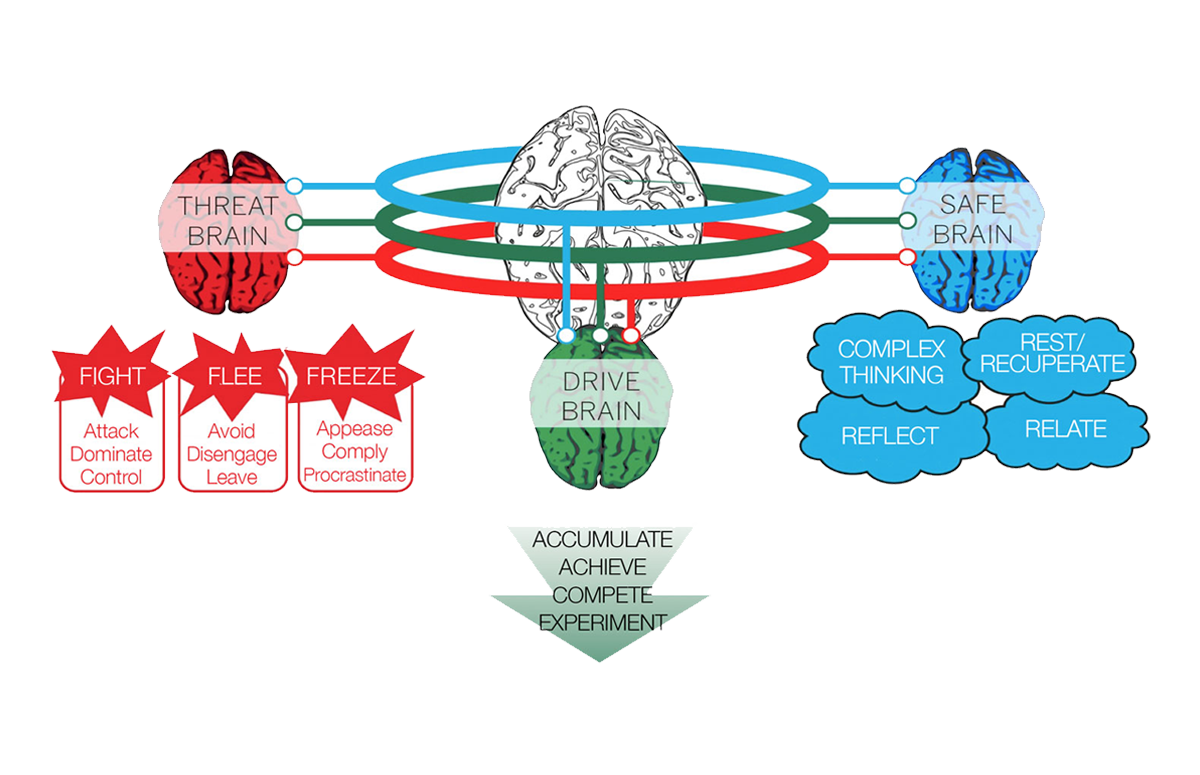Compassion & the Trimotive Brain
We believe that compassion is at the heart of all great leadership. There is a lot of evidence to show how compassion helps us at work and in our relationships.
The Trimotive brain is our metaphor to represent contemporary research which shows when our brain is ‘centred’, in other words when ‘threat’, ‘drive’ and ‘safe’ brain capabilities are regulated and aligned, we are able to think and act at our best. Compassion activates out ‘safe’ brain and helps us to be mindful, kind and forgiving towards our self and other people. When these qualities influence our thinking and actions we are more effective even when events and people are difficult, unpredictable, complex and changing.

The Trimotive Brain
The Trimotive brain is a metaphor we use to describe how we are motivated. Without motivations we would not be alive. Living creatures need to experience the energy and desire to seek food, stay safe and if possible, reproduce. In organisms with nervous systems the brain mediates motivation through three neurological systems which we call the threat brain, the drive brain and the safe brain. In reality they are all part of one interconnected system, which at the Dialogue Space we have named the Trimotive Brain
Our motivations are activated by emotions which are neurochemical reactions in our body that are triggered by experiences we have and occur without our conscious control. Emotions are not the same as feelings. A feeling is our representation (through naming) of what is happening in our body. Distinguishing emotion from feeling is important because it is our conscious ‘naming’ of our body responses that determines how we act.
The purpose of human emotion is to motivate action in order to achieve the basic goals of survival, accumulation and relationship. Threat brain, our oldest motivation system, enables us to recognise and respond to danger. Drive brain motivates us to seek out pleasurable and rewarding experiences. Safe brain motivates us to rest, recover and form relationships with others. Ideally, we need all three motivational systems working together in a balanced way and regulating each other.
Unfortunately, many of us get caught in unhelpful habits which are sustained because our motivational systems are ‘dis-integrated’ and out of balance. Usually the cause of dis-integration is an over-active threat brain. Many of our personal and social problems can be attributed to this over-activity: high blood pressure, anxiety, loneliness, addiction and shame are a few of the consequences we can trace back to the innate and learned responses of our threat brain. To overcome these problems we need to recognise when we are in a state of ‘dis-integration’ and we need to learn what to do in order to restore equilibrium. This is when we are most likely to experience and act from our full potential.